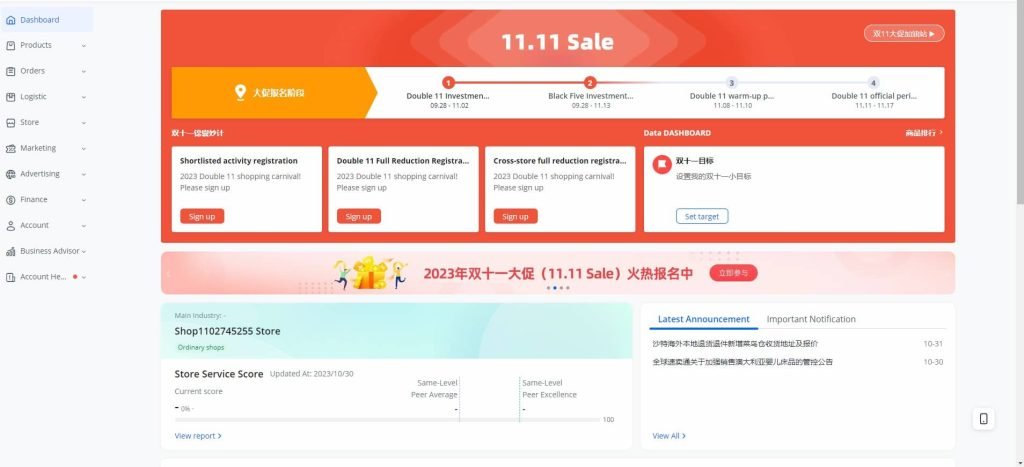How do i find reliable dropshipping suppliers
Dropshipping, as a streamlined form of retail business, eliminates the need for stores to maintain physical inventories. Instead, when a store sells a product, it purchases the item from a third party and has it shipped directly to the customer. This model not only cuts operational costs but also allows for a wide range of products to be offered.
The success of a dropshipping business heavily relies on its partnership with suppliers. Finding reliable dropshipping suppliers is a cornerstone for building a resilient and profitable business. Reliable suppliers ensure product quality, consistent stock availability, and efficient delivery – key aspects that profoundly affect customer satisfaction. In the era of e-commerce, where competition is fierce, having dependable suppliers means staying ahead in the game. It’s about creating a supply chain that is both efficient and trustworthy.
Selecting the right dropshipping suppliers involves careful consideration of several factors. It’s not just about finding someone who can provide a wide range of products, but also about ensuring they align with your business values, customer expectations, and market trends.
Let’s delve deeper into how you can research and find the ideal suppliers for your dropshipping business.
I. Research Potential Suppliers
Identifying and selecting the right suppliers is a critical step for any dropshipping business. It begins with thorough research to locate potential suppliers who can meet your specific needs. Here are some effective strategies to kickstart your search:
Online Directories and Marketplaces: Utilize online directories like Alibaba, AliExpress, and SaleHoo, which list thousands of suppliers and manufacturers. These platforms offer an extensive range of products and provide a straightforward way to connect with suppliers globally. Pay attention to suppliers with high ratings and positive feedback.

Specialized Google Searches: Use specific keywords related to your niche along with terms like “wholesaler” or “dropshipper” for more targeted results. For instance, searching “wholesale dropshipping electronics” can yield suppliers specializing in electronic products.
Trade Shows and Expos: Attending industry-specific trade shows provides an opportunity to meet suppliers in person, understand their product offerings, and gauge their professionalism. This can be invaluable for establishing a more personal and reliable business relationship.
Utilize Social Media and Forums: Platforms like LinkedIn, Reddit, and various dropshipping forums can be great places to get recommendations and insights about reliable suppliers. Engaging with a community of experienced dropshippers can lead to discovering lesser-known but high-quality suppliers.
Bigbuy and Similar Platforms: Bigbuy is a notable European B2B platform known for its vast array of products and services tailored for dropshipping businesses. Exploring such platforms can open doors to numerous suppliers with a track record of serving dropshipping businesses effectively.
When researching suppliers, it’s crucial to look beyond just product offerings. Consider factors like shipping times, the quality of customer service, and their experience with dropshipping. A supplier’s ability to provide consistent stock and handle returns efficiently is also paramount.
It’s wise to compile a list of potential suppliers and then proceed to the next step: vetting and evaluating them. This process involves deeper research into each supplier’s reputation, reliability, and compatibility with your business model.
II. Vet and Evaluate Suppliers
Once you have identified potential dropshipping suppliers, the next crucial step is to vet and evaluate them to ensure they can meet your business requirements. Here’s how you can thoroughly vet your suppliers:
Check Reputation and Reviews: Start by examining the supplier’s reputation in the market. Look for reviews and testimonials from other businesses that have used their services. Platforms like Trustpilot, Google Reviews, and Better Business Bureau offer insights into their reliability and customer service quality.

Assess Pricing and Product Range: Compare the pricing and the range of products offered by different suppliers. While competitive pricing is essential, it should not come at the cost of product quality. Also, ensure that the supplier’s product range aligns with your niche and business goals.
Order Samples: Ordering samples is an excellent way to test the quality of the products and the efficiency of the shipping process. It also gives you firsthand experience of what your customers will receive.
Evaluate Shipping Times and Costs: Since shipping plays a pivotal role in customer satisfaction, assess the shipping times and costs. Longer shipping times or high costs can be a deal-breaker for customers. Prefer suppliers who offer fast and cost-effective shipping options.
Customer Service Response: Test the supplier’s customer service by asking questions or raising concerns. Note how quickly and effectively they respond. Good customer service is crucial for resolving issues and maintaining smooth operations.
Check for Dropshipping Experience: Suppliers experienced in dropshipping are likely to have a better understanding of the business model’s needs. They can offer valuable insights and may have systems in place for seamless cooperation.
Evaluate Their Return Policy: Understand the supplier’s policy on returns and damaged goods. A clear and fair return policy is essential for handling customer complaints and maintaining your brand reputation.
Once you have thoroughly vetted and evaluated the suppliers, select the ones that best fit your business model, offer quality products, reliable shipping, and excellent customer service. Remember, the right supplier is not just a vendor but a partner in your business’s success.
III. Build Relationships
After selecting the right suppliers, the next step is to foster and maintain strong relationships with them. Good supplier relationships are key to a successful dropshipping business. Here’s how to build and nurture these essential partnerships:
Effective Communication: Regular and open communication is fundamental. Keep your suppliers informed about your business plans, product preferences, and customer feedback. This helps them understand your business better and can lead to improvements in product quality and service.
Provide Constructive Feedback: Don’t hesitate to provide feedback, both positive and negative. Constructive criticism can help suppliers improve their products or services, ultimately benefiting your business.
Negotiate Better Deals: Once you establish a good relationship, you might be able to negotiate better terms, such as discounts on bulk orders or more favorable payment terms. This can help improve your profit margins and business growth.
Address Issues Promptly: If issues arise, address them directly and promptly with your suppliers. Whether it’s a delay in shipment, quality concerns, or any other problem, quick resolution is essential to maintain trust and reliability.
Visit Them If Possible: If your suppliers are not too far away, consider visiting their facilities. This can give you a better understanding of their operations and help strengthen the relationship.
Stay Loyal and Fair: Loyalty can go a long way. If your suppliers see that you are committed to them, they are more likely to go the extra mile for you. However, ensure that this loyalty is based on their continued good performance and fair business practices.
Be Prepared to Switch: While building relationships is important, don’t hesitate to switch suppliers if recurring issues are affecting your business. Having a backup plan and being ready to change suppliers ensures that your business remains flexible and resilient.
By maintaining strong relationships with your suppliers, you can ensure a steady supply of quality products, potentially get better deals, and have a more reliable dropshipping operation. This not only benefits your business but also enhances the customer experience.

Conclusion
To conclude, success in dropshipping hinges on careful supplier selection and fostering solid relationships with them. These partnerships are crucial for ensuring product quality and reliable logistics, directly impacting customer satisfaction. As the dropshipping landscape constantly evolves, adaptability and a focus on quality control are key. Embracing these principles, your dropshipping venture is set to navigate the competitive realm of online retail successfully.

